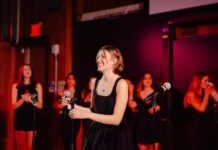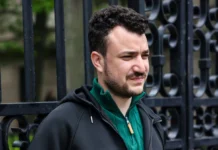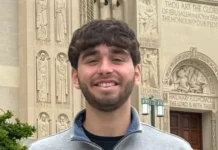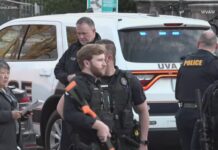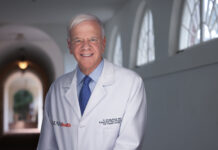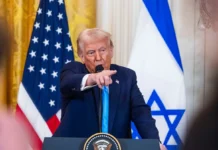The Fulbright Program was founded in 1946, and serves to provide postgraduate students with opportunities to educate others and connect with colleagues abroad in over 140 countries. Scholarships are granted across disciplines, and there are varied options for locations and types of research that can be pursed. This year, the University of Virginia was among the best institutions for producing Fulbright award-winners.
According to an article by UVA Today, 12 UVa students and alumni received the award for the 2017-2018 academic year. Since the program started, UVa has had 252 Fulbright scholars in total.
WUVA News attended the third annual Fulbright panel discussion last night, where four scholars spoke about their experiences in the program and answered questions from prospective participants.
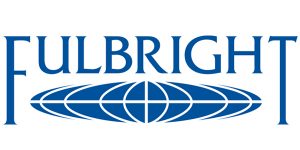
The students explained how unique the Fulbright program was for them. Each raved about the variety of options and freedom they had while conducting their research.
Erin E. Sutherland, a 2017 Fulbright placed in David, Panama, explained how the program is “amazingly diverse; from the people to the education to the landscape…this often gets overlooked.” Sutherland continued to discuss the variety of academic and extracurricular opportunities she was given as a teacher’s assistant at the Language Center of Panama’s Technological University.
The panelists also touched on the benefits of the teaching and research opportunities–this differed from simply studying abroad as an exchange student.
Naveed Tavakol, a 2016 Fulbright recipient who conducted research for bone marrow advancement in Lausanne, Switzerland, walked the audience through a typical day, which he described as rewarding.
“[Depending] on the projects and research on that day…I would wake up early, plan experiments, work with older students and researchers, perform experiments, schedule meetings with collaborators, and go to these meetings,” Tavakol explained. All of the panelists agreed that the “workday” feel of the program served as a valuable experience.
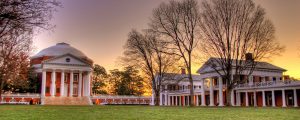
Brett Evans, a 2013-2014 Fulbright that traveled to Bristol, United Kingdom to pursue graduate research on Greek and Latin, spoke with passion about how the Fulbright Program impacted his professional decisions and life goals. This process started with the application, where Evans wrote about his life view and goals.
“Doing this is not as easy as it seems,” Evans stated. “It was, however, very helpful for me because it forced me to make important decisions about my life.”
On being abroad, researching, and teaching, Evans added that “this [was] a great opportunity to take seriously. You learn so much about yourself.”
Every panelist at the Wednesday event encouraged listeners to apply to the Fulbright program and encourage others to do so as well. The consensus was that even applying would be helpful for making decisions as a post-grad. Tavakol added that the Fulbright Program is an amazing opportunity for someone who “wants to do something completely different from research at UVa.”
What are the panelists doing now after their unique experiences? They are PhD candidates at UVa, searching for jobs in international relations, working as legal assistants, and more. Considering these accomplishments abroad and at home, it seems that UVa’s success with the Fulbright program could be on the rise.







